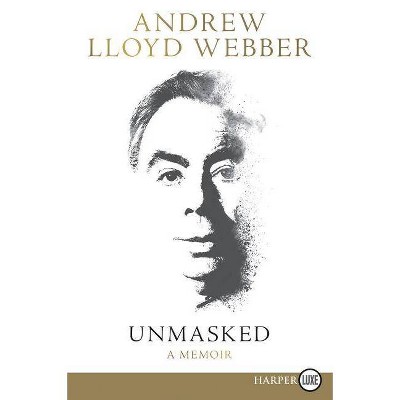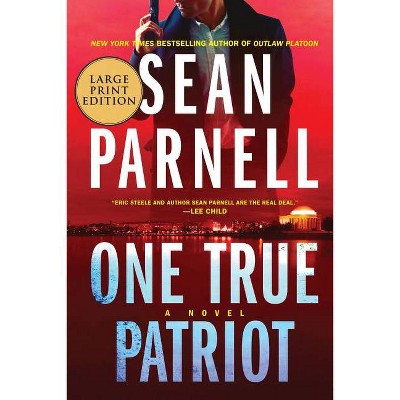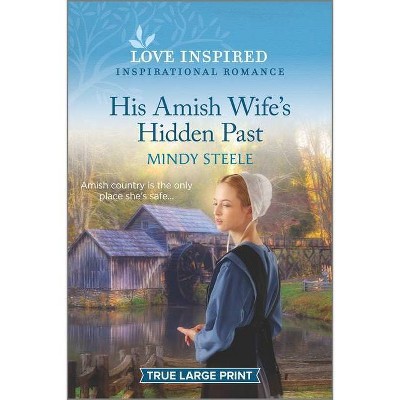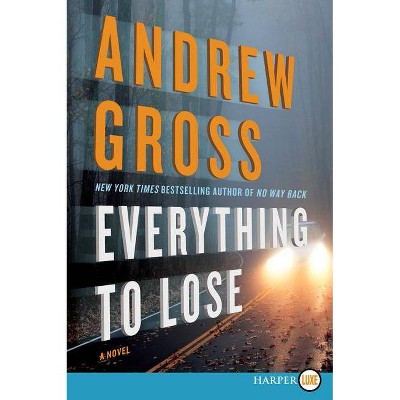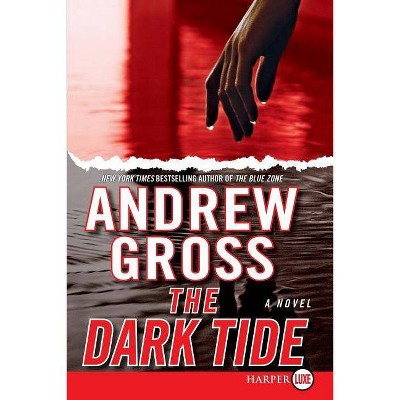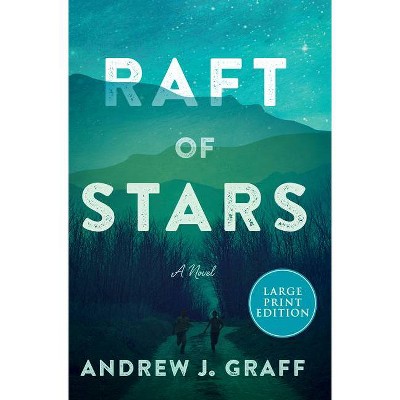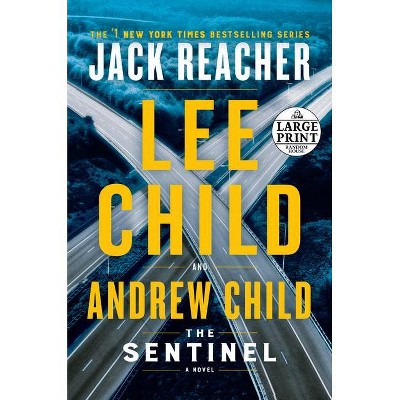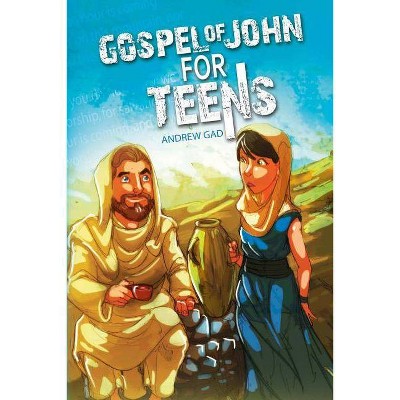Ageless - Large Print by Andrew Steele (Paperback)
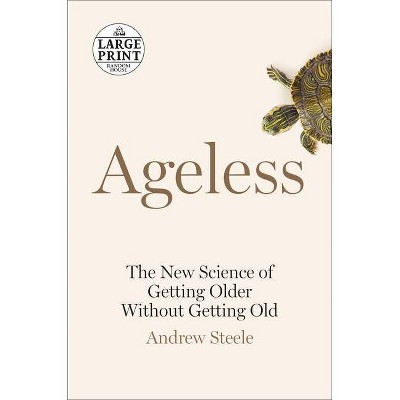
Similar Products
Products of same category from the store
AllProduct info
<p/><br></br><p><b> About the Book </b></p></br></br>"A startling chronicle by a brilliant young scientist takes us onto the frontiers of the science of aging, and reveals how close we are to an astonishing extension of our life spans and a vastly improved quality of life in our later years. Aging--not cancer, not heart disease--is the true underlying cause of most human death and suffering. We accept as inevitable that as we advance in years our bodies and minds begin to deteriorate and that we are ever more likely to be felled by dementia or disease. But we never really ask--is aging necessary? Biologists, on the other hand, have been investigating that question for years. After all, there are tortoises and salamanders whose risk of dying is the same no matter how old they are. With the help of science, could humans find a way to become old without getting frail, a phenomenon known as "biological immortality"? In Ageless, Andrew Steele, a computational biologist and science writer, takes us on a journey through the laboratories where scientists are studying every bodily system that declines with age--DNA, mitochondria, stem cells, our immune systems--and developing therapies to reverse the trend. With bell-clear writing and intellectual passion, Steele shines a spotlight on a little-known revolution already underway"--<p/><br></br><p><b> Book Synopsis </b></p></br></br><b><b>"A fascinating look at how scientists are working to help doctors treat not just one disease at a time, but the aging process itself."</b> --<b>Dr. Sanjay Gupta</b><br/> <br/><b>A startling chronicle by a brilliant young scientist takes us onto the frontiers of the science of aging, and reveals how close we are to an astonishing extension of our life spans and a vastly improved quality of life in our later years.</b></b> <p/>Aging--not cancer, not heart disease--is the true underlying cause of most human death and suffering. We accept as inevitable that as we advance in years our bodies and minds begin to deteriorate and that we are ever more likely to be felled by dementia or disease. But we never really ask--is aging necessary? Biologists, on the other hand, have been investigating that question for years. After all, there are tortoises and salamanders whose risk of dying is the same no matter how old they are. With the help of science, could humans find a way to become old without getting frail, a phenomenon known as biological immortality?<br/><br/>In <i>Ageless, </i> Andrew Steele, a computational biologist and science writer, takes us on a journey through the laboratories where scientists are studying every bodily system that declines with age--DNA, mitochondria, stem cells, our immune systems--and developing therapies to reverse the trend. With bell-clear writing and intellectual passion, Steele shines a spotlight on a little-known revolution already underway.<p/><br></br><p><b> Review Quotes </b></p></br></br><br>"During medical school we were taught that aging is a natural process and that people can simply die of old age. The thinking was that age wasn't just a turning of the clock but an accumulation of mutations, cancer, arthritis, heart disease and dementia. Have you ever wondered, however, if it was possible to address those diseases not just individually, but collectively, by addressing the underlying process of aging itself. Sound far fetched? Well, It's this audacious way of thinking that propelled Andrew Steele to write <i>Ageless</i>. In this new book, Steele highlights therapies being developed to stymie aging, from rebooting the immune system to repairing DNA to removing senescent cells. This is a fascinating look at how scientists are working to help doctors treat not just one disease at a time, but the aging process itself, helping us all to lead longer, healthier lives." <br><b>-Dr. Sanjay Gupta, Chief Medical Correspondent for CNN</b> <p/>"Writing with the vim of a Bill Bryson and the technical knowledge of a scientist, Steele gives us a chance to grasp what's at stake in this dazzling, daunting age where big data meets human biology"<br><b><i>-The Independent</i></b> <p/>"Whether or not readers are persuaded that ageless humans could ever be more than a theoretical possibility--and it is a stretch--this book will convince them that discounting the theoretical possibility altogether is based on nothing but prejudice. . . [Scientists] have many tools at their disposal, [and Steele] evaluates them expertly and with verve."<br><b><i>-The Economist</i></b> <p/>"Entertaining and thoughtful. . . if, as Mr. Steele contends, 'tortoises get old without getting elderly, ' might we not master 'biological immortality' and become ageless too? . . . we may all need to start planning for a fundamentally different future."<br><b><i>-The Wall Street Journal</i></b> <p/>"We assume that 'getting older' inevitably means 'getting old, ' with all the increased frailty and diminished vitality we associate with advancing age. But getting on in years doesn't have to mean becoming elderly, Steele argues - and in his new book, <i>Ageless</i>, he does a surprisingly effective job of decoupling the two."<br><b><i><b><i>-</i></b>The New York Times Book Review</i></b> <p/>People are living longer, staying healthier longer and accomplishing things late in life that once seemed possible only at younger ages. . . Andrew Steele . . . describes a series of experimental interventions designed to slow biological processes that are part of aging.<br><b><i>-</i>David Brooks, <i> The New York Times</i></b> <p/>I heartily recommend this one. It's modest in scope, and generous in detail. . . honest and optimistic. <br> <b><i>-The Telegraph</i> (U.K.)</b> <p/>As Steele admits, 'treating ageing sounds like science fiction'. . . But, after you've read Ageless, and heard about the latest developments in ageing biology, it begins to sound more like science fact.<br><b><i>-The Daily Mail</i> (U.K.)</b> <p/>"<i>Ageless</i> is a rich and exciting exploration of that surprisingly intriguing topic we'd rather not talk about: old age."<br> <i><b>-The Irish Times</b></i> <p/>"An optimistic exploration of aging. . . A diligent scientist, Steele does not ignore flops and fads. . . Good science in service of a convincing case that vast life extension is inevitable."<br><b>-<i>Kirkus</i></b> <p/>"Steele succeeds in bringing some of the ethical and policy issues surrounding the field of biogerontology [into] this thorough, yet accessible narrative. . . A solid read for those interested in biological sciences research, and anyone looking to learn more about aging in general." <br><b>-<i>Library Journal</i></b> <p/>"Rejuvenation biotechnology is coming, but not rapidly enough. <i>Ageless</i> is an outstanding, totally accessible exposition of why aging can and should be understood as a medical problem, and of how the world's leading medical researchers are solving it. An absolute tour de force, it will surely save many lives by inspiring new recruits to join this crusade."<br><b>--Aubrey de Grey, Chief Science Officer and co-founder of the SENS Research Foundation</b> <p/>"In his book <i>Ageless</i>, Andrew Steele describes how the field of aging biology moved from hope to promise. This is a masterful road map for interested lay people, scientists at large and also geroscientists like myself-- I was surprised how much I learned." <br><b>-Nir Barzilai, </b> <b>M.D., </b> <b>founding director of the Institute for Aging Research at Albert Einstein College of Medicine of Yeshiva University</b> <b>and author of</b> <b><i>Age Later: Health Span, Life Span and the New Science of Longevity</i></b> <p/>"An essential book for anyone interested in the fast-developing science of longevity." <br><b>-Jim Mellon, Chairman of Juvenescence</b> <p/>"<i>Ageless</i> is a fascinating, stimulating and pleasingly practical guide to the science of aging and how we might be able to bend the arrow of biological time to improve our health." <br><b>-Kat Arney, author of</b> <b><i>Rebel Cell: Cancer, Evolution and the Science of Life</i></b> <p/>"Few issues can be more important for our future than ensuring we age as well as possible. <i>Ageless</i> explains the extraordinary achievements and promise of current scientific research around longevity. Read it and prepare to think differently about your future." <br><b>-Andrew Scott, Professor of Economics, London Business School and co-author of</b> <b>The 100 Year Life</b> <p/>"An immensely important book. Steele surveys the biology of human ageing, as well as the cutting-edge research on how to prevent it. The first person to achieve immortality may already have been born. Is it you?!"<br><b>-Prof. Lewis Dartnell, author of </b><i>Origins</i> <p/>"Consulting most of the experts in this surprisingly tiny field, Andrew Steele, a young 'big-data' guru himself, has crafted a rigorous yet enjoyably readable, spell-binding tale -- which never gets old (and impacts nearly all morbidity and mortality). After centuries of false starts, this project seems to finally have traction toward powerful medicines." <br><b>--George Church, Professor of Genetics, Harvard Medical School</b><br><p/><br></br><p><b> About the Author </b></p></br></br>After obtaining a PhD in physics from the University of Oxford, ANDREW STEELE decided that ageing was the most important scientific challenge of our time, and switched fields to computational biology. He worked at the Francis Crick Institute, using machine learning to decode our DNA and predict heart attacks using patients' medical records. He is now a ful-time science writer and presenter based in London. He has appeared on Discovery and the BBC.
Price History
Price Archive shows prices from various stores, lets you see history and find the cheapest. There is no actual sale on the website. For all support, inquiry and suggestion messagescommunication@pricearchive.us
